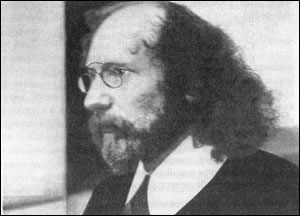 Vyacheslav Ivanovich is one of the most well-known poets associated with the Russian Symbolism movement. While he is best known for his poetic works, Ivanovich was also a playwright, a philosopher, an essayist and a critic. His work embodies much of what made Symbolism popular, and his writings about Symbolism were collected in the 1936 book, Simbolismo.
Vyacheslav Ivanovich is one of the most well-known poets associated with the Russian Symbolism movement. While he is best known for his poetic works, Ivanovich was also a playwright, a philosopher, an essayist and a critic. His work embodies much of what made Symbolism popular, and his writings about Symbolism were collected in the 1936 book, Simbolismo.
Ivanovich was born February 16, 1866 in Moscow. He graduated from the First Moscow Gymnasium with a Gold Medal, and went on to attend Moscow University. In 1886, he moved to Berlin to study under Theodor Mommsen, who is generally regarded as the greatest classicist of the 19th century, and who received the Nobel Prize for Literature in 1902. Ivanovich studied with Mommsen until 1891, when he began traveling abroad, mostly in Italy, but also throughout Europe. It was during this time that he met Lydia Zinovieva-Annibal, and eventually married her in 1898 after divorcing his first wife.
During the years following Ivanovich”s years in Berlin, he and Lydia traveled extensively, moving from Athens to Geneva, and making pilgrimages to Egypt, Palestine, Lombardy and Italy. His first book of poetry, Lodestars, was published in 1903, but contained poetry that had been written over the previous decade. It immediately cemented his place among the Russian Symbolists, and invited comparisons with Milton and Trediakovsky. By the time he returned to St. Petersburg in 1905, his reputation as a poet, writer and critic was well-established. Ivanovich and Lydia took up housekeeping in a turreted house that became the most popular salon of the era, hosting poets, writers, philosophers, artists and dramatists.
This idyllic time was not to last, however. In 1907, Lydia died. Most critics feel that his poetry declined from that time on, losing its grandeur and taking on the trappings of theosophy and mysticism. In 1910, Ivanovich married his stepdaughter, claiming that his beloved Lydia had ordered him to do so in a vision. Their son Dimitry was born in 1912. Ivanovich continued to write, and published a series of articles on the Symbolists, which were released in 1936 as a collection. Ivanovich moved away from poetry after their publication, turning instead to translations of Sappho, Alcaeus, Eschylus and Petrarch.
When the new Communist regime took power, Ivanovich was not allowed to leave Russia until 1924 when he was allowed to lecture in Azerbijan. From there, he traveled to Italy, and settled in Rome, where he remained until his death in 1949. It was in Rome that he began to write poetry again, publishing Roman Sonnets in 1924 and Roman Diary in 1944. Many other poems by Ivanovich were published posthumously.


You must register to comment. Log in or Register.